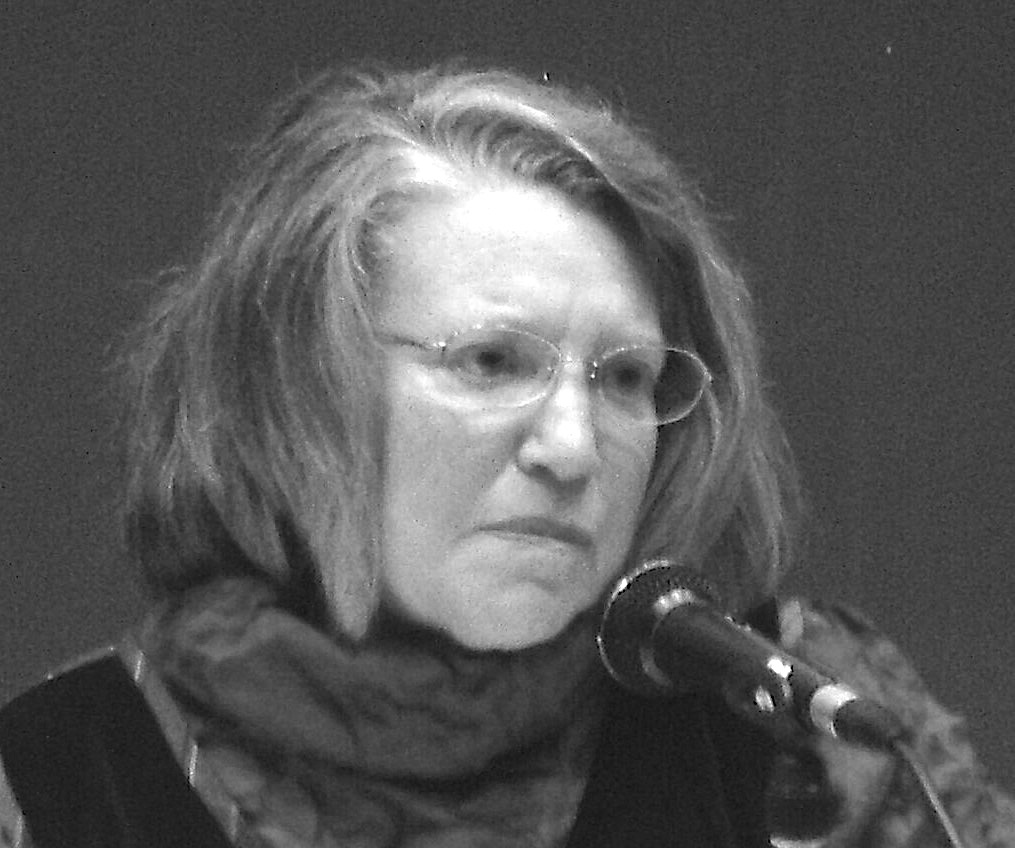
承認的正義
Recognition justice

★
「個人や集団がある制度化された文化的価値パターンの構築に対等に参加しておらず、またその価値パターンが個人や集団に特有や特徴や割り当てられた特徴に
貶めるだけならば、たんにそうした文化的価値パターンのせいだけでそれら個人や集団が社会的相互行為の完全なパートナーの地位を否定されているのは不当で
ある、と主張するべきである」(ナンシー・フレイザー2012:34)
☆ 承認的正義(Recognition justice)は、人間の尊厳と、従属集団と支配的社会との間の差異の承認を強調する社会正義の理論である。 社会哲学者のアクセル・ホーネットとナンシー・フレイザーは、分配的正義/配分的正義(経済的不平等をなくすことを強調する)から承認的正義へと、21世紀における正義の理論のシフトを指摘し、屈辱と軽蔑の排除を主張している。 ナンシー・フレイザーは、承認的正義への過剰な依存を批判し、社会への平等な参加を保証するために分配的正義と承認的正義を組み合わせるべきだと主張して いる。さて、このような承認的正義(Recognition justice)へのシフトは、アイデンティティ・ポリティクスの台頭と関連している。承認的正義の政治的含意は、再分配可能な資源ではない承認が、むしろ人々や集団の現象学的経験であるため、再分配的正義よりも曖昧である。
| Recognition justice
is a theory of social justice that emphasizes the recognition of human
dignity and of difference between subaltern groups and the dominant
society.[1][2] Social philosophers Axel Honneth and Nancy Fraser point
to a 21st-century shift in theories of justice away from distributive
justice (which emphasises the elimination of economic inequalities)
toward recognition justice and the eliminating of humiliation and
disrespect.[1] The shift toward recognition justice is associated with
the rise of identity politics.[3] The political implications of recognition justice are more ambiguous than distributive justice, because recognition is not a resource than can be redistributed, but is rather a phenomenological experience of people and groups.[1][4] |
承認的正義は、人間の尊厳と、従属集団と支配的社会との間の差異の承認
を強調する社会正義の理論である。[1][2]
社会哲学者のアクセル・ホーネットとナンシー・フレイザーは、分配的正義(経済的不平等をなくすことを強調する)から承認的正義へと、21世紀における正
義の理論のシフトを指摘し、屈辱と軽蔑の排除を主張している。[1] 承認的正義へのシフトは、アイデンティティ政治の台頭と関連している。[3] 承認的正義の政治的含意は、再分配可能な資源ではない承認が、むしろ人々や集団の現象学的経験であるため、再分配的正義よりも曖昧である。[1][4] |
| Background and debate Nancy Fraser critiques over-reliance on recognition justice, arguing for a combination of distributive and recognition justice to guarantee equal participation in society.[1] Fraser states that since 1989, the political left has entered a post-socialist period marked by the absence of any credible vision for a just society. In this absence, claims by subaltern groups for recognition of difference have become “intensely salient… at times eclipsing claims for social equality.”[3] She further observes that 21st century social movements are increasingly defined as cultural groups rather than as economic classes (as was the case prior to the 1990s when a socialist/Marxist analysis dominated leftist ideology). Fraser aims to integrate claims for recognition with claims for redistribution in the context of rising neoliberalism that has resulted in further concentration of wealth and distributive injustice. David Ingram in his book World Crisis and Underdevelopment claims that injustice always implies lack of recognition. He promotes recognition justice, stating that “recognition theory takes up everyday feelings of moral outrage, encourages theoretical elaboration of new concepts by which to name and identify the harms that occasion that outrage, and thereby provides theoretical guidance to the formation of social movements aimed at overcoming a vast array of distinctive types of social injustices.”[4] Schweiger critiques Ingram's claims that injustice implies lack of recognition, stating that certain forms of epistemic injustice have “precisely the form of separating injustices and experiences of misrecognition.”[4] He asserts that phenomenologically, most people do not understand the injustices they face and may unquestioningly accept their own exploitation.[4] |
背景と議論 ナンシー・フレイザーは、承認的正義への過剰な依存を批判し、社会への平等な参加を保証するために分配的正義と承認的正義を組み合わせるべきだと主張して いる。[1] フレイザーは、1989年以降、政治的左派は公正な社会の実現に向けた信頼に足るビジョンを欠いたポスト社会主義時代に突入したと述べている。この不在に より、従属集団による相違の承認を求める主張は「際立って顕著になり…時に社会的平等の主張を覆い隠すほど」になっている。[3] さらに彼女は、21世紀の社会運動はますます経済的階級としてよりも文化的集団として定義されるようになっていると指摘している(1990年代以前は、社 会主義/マルクス主義的分析が左派のイデオロギーを支配していた)。フレイザーは、富の一層の集中と分配の不公平をもたらした新自由主義の高まりという状 況において、承認の要求と再分配の要求を統合することを目指している。 デイヴィッド・イングラムは著書『世界危機と発展途上国』の中で、不公正は常に承認の欠如を意味すると主張している。彼は「承認理論は、道徳的な憤りを日 々感じている人々の感情を取り上げ、その憤りの原因となる害を名指し、特定するための新しい概念の理論的精緻化を促し、それによって、さまざまな特徴を持 つ社会的不公正を克服することを目的とした社会運動の形成に理論的な指針を提供する」と述べ、承認的正義を推進している。 シュヴァイガーは、不正が認知の欠如を意味するというイングラムの主張を批判し、ある種の認識的不正は「まさに不正と誤認の経験を分離する形」であると述 べている。[4] 彼は、現象学的に見ると、ほとんどの人は自分が直面している不正を理解しておらず、自らの搾取を疑いなく受け入れている可能性があると主張している。 [4] |
| Environmental justice Environmental justice scholar Kyle Powys Whyte promotes recognition justice as a framework for evaluating the fairness of interactions between American Indigenous people and the US federal government.[2] He elaborates that distributive, procedural, and corrective justice frameworks can't be applied to tribal contexts without recognising native peoples' unique experiences with colonisation and political statuses. Tribal environmental struggles can't be reduced to class conflicts, and Indigenous peoples' economic aspirations may not be commensurable with the economic values of the dominant society.[2] Colville scholar Dina Gilio-Whitaker also states that environmental justice frameworks should recognise Indigenous peoples' special legal relationship with the federal government and spiritual interdependence with the Earth.[5] |
環境正義 環境正義の研究者であるカイル・パウイス・ホワイトは、アメリカ先住民と米国連邦政府間のやりとりの公平性を評価する枠組みとして、承認的正義を推進して いる。[2] 彼は、分配的正義、手続き的正義、是正的正義の枠組みは、先住民の植民地化や政治的地位に関する独自の経験を認識せずに部族の文脈に適用することはできな いと詳しく説明している。部族の環境問題は階級闘争に還元することはできず、先住民の経済的願望は支配的な社会の経済的価値と比較できるものではないかも しれない。 コルヴィル大学の学者、ディナ・ギリオ=ウィテカーも、環境正義の枠組みは、先住民と連邦政府との特別な法的関係、および地球との精神的な相互依存関係を認識すべきであると述べている。 |
| Honneth,
Axel (2004). "Recognition and Justice: Outline of a Plural Theory of
Justice". Acta Sociologica. 47 (4): 351–364.
doi:10.1177/0001699304048668. ISSN 0001-6993. JSTOR 4195049. S2CID
145353415. Whyte, Kyle Powys (2011). "The Recognition Dimensions of Environmental Justice in Indian Country". Environmental Justice. 4 (4): 199–205. doi:10.1089/env.2011.0036. ISSN 1939-4071. Fraser, Nancy (2014). Justice Interruptus: Critical Reflections on the "Postsocialist" Condition. doi:10.4324/9781315822174. ISBN 9781317828082. Schweiger, Gottfried (2019-11-29). "Recognition, misrecognition and justice". Ethics & Global Politics. 12 (4): 1693870. doi:10.1080/16544951.2019.1693870. ISSN 1654-4951. S2CID 214079331. Gilio-Whitaker, Dina (2019). As long as grass grows : the indigenous fight for environmental justice, from colonization to Standing Rock. Boston, Massachusetts. ISBN 978-0-8070-7378-0. OCLC 1044542033. |
Honneth,
Axel (2004). 「Recognition and Justice: Outline of a Plural Theory of
Justice」. Acta Sociologica. 47 (4): 351–364.
doi:10.1177/0001699304048668. ISSN 0001-6993. JSTOR 4195049. S2CID
145353415. ホワイト、カイル・パウイス(2011年)。「インディアン居留地における環境正義の認知の次元」。『環境正義』4(4):199-205。doi:10.1089/env.2011.0036。ISSN 1939-4071。 Fraser, Nancy (2014). Justice Interruptus: Critical Reflections on the 「Postsocialist」 Condition. doi:10.4324/9781315822174. ISBN 9781317828082. シュヴァイガー、ゴットフリート(2019年11月29日)。「認識、誤認識、そして正義」。『倫理とグローバル政治』。12(4):1693870。 doi:10.1080/16544951.2019.1693870。ISSN 1654-4951。S2CID 214079331. Gilio-Whitaker, Dina (2019). As long as grass grows : the indigenous fight for environmental justice, from colonization to Standing Rock. Boston, Massachusetts. ISBN 978-0-8070-7378-0. OCLC 1044542033. |
| https://en.wikipedia.org/wiki/Recognition_justice |
|
| 中断された正義 : 「ポスト社会主義的」条件をめぐる批判的省察 / ナンシー・フレイザー著 ; [ギ]ブソン松井佳子 [ほか] 訳, 御茶の水書房 , 2003 Description 近代市民社会の男性中心主義の原理に挑戦してきたフェミニズムは、大きな分岐点に差しかかっている。闘いの最前線において、ジェンダー間の経済的平等の実現を目指す再配分的正義論と、「女性」に固有な文化的表象を求める承認的正義論の連帯が“中断”され、統一的な「ジェンダー的正義」を掲げることが困難になっている。 フェミニズムと、他のマイノリティ権利擁護運動との亀裂も表面化しつつある。ジェンダーの「批判理論」の提唱者ナンシー・フレイザーが「経済的不公正」と 「文化的不公正」の複雑な絡み合いを系譜学・意味論的に解きほぐしながら、打開に向けてのプラグマティックな戦略を呈示する。 Table of Contents 中断された正義 第1部 再配分と承認 ・再配分から承認へ?—「ポスト社会主義」時代における正義のジレンマ ・家族賃金の後に—脱工業化の思考実験 第2部 公共圏、系譜学、そして象徴的秩序 ・公共圏の再考—現存する民主主義批判のための論考 ・セックスと嘘と公共圏—クラレンス・トーマスの承認についての検討 ・「依存」の系譜学—合衆国の福祉制度のキーワードをたどる ほか) 第3部 フェミニズム的介入 ・多文化主義、反本質主義、ラディカル・デモクラシー—フェミニスト理論における現在の行き詰まりを系譜学的に捉え直す ・文 化、政治経済、差異—アイリス=マリオン・ヤングの『正義と差異のポリティクス』について ・間違ったアンチ・テーゼ—セイラ・ベンハビブとジュディス・バ トラーへの応答 ほか) |
再配分か承認か? :
政治・哲学論争 / ナンシー・フレイザー, アクセル・ホネット [著] ; 高畑祐人 [ほか] 訳, 法政大学出版局 , 2012
. - (叢書・ウニベルシタス, 983)/ Umverteilung oder Anerkennung?/ Redistribution
or recognition? : a political-philosophical exchange [pdfにつながるリンク] アンデンティティと差異をめぐる「承認」は富を還元する「再配分」との関係において論争が絶えない。「規範的な一元論」によって承認は決定的な道徳論とな るのか。「パースペクティヴ的二元論」によって再配分は承認に包摂されず相互に還元不可能な次元として理解されるべきなのか。資本主義に対する批判理論に おいて道徳哲学・社会理論・政治分析の統合を目指した画期的な論争。 第1章 アイデンティティ・ポリティクスの時代の社会正義—再配分・承認・参加(ナンシー・フレイザー) ・再配分か承認か—切り詰められた正義の批判 ・再配分と承認の統合—道徳哲学の問題 ・社会理論の問題—資本主義社会における階級と社会的地位 ・政治的理論の課題—民主的正義を制度化する ・危機的状況についての結論敵省察—ポストフォード主義・ポスト共産主義・グローバリゼーション 第2章 承認としての再配分—ナンシー・フレイザーに対する反論(アクセル・ホネット) ・社会的不正の経験の現象学について ・資本主義的な承認の秩序と配分をめぐる闘争 ・承認と社会正義 第3章 承認できぬほどゆがめられた承認—アクセル・ホネットへの応答(ナンシー・フレイザー) ・批判理論における経験の位置について—政治社会学を道徳心理学に還元することに対する反論 ・社会理論における文化論的転回について—資本主義社会を承認秩序に還元することに対する反論 ・リベラルな平等について—正義を健全なアイディンティティの倫理に還元することに対する反論 第4章 承認ということの核心—返答に対する再返答(アクセル・ホネット) ・批判的社会理論と内在的超越 ・資本主義と文化—社会統合・システム統合・パースペクティヴ的二元論 ・歴史と規範性—義務論の限界について |
リ ンク
文 献
そ の他の情報
Copyleft, CC, Mitzub'ixi Quq Chi'j, 1996-2099
☆
 ☆
☆